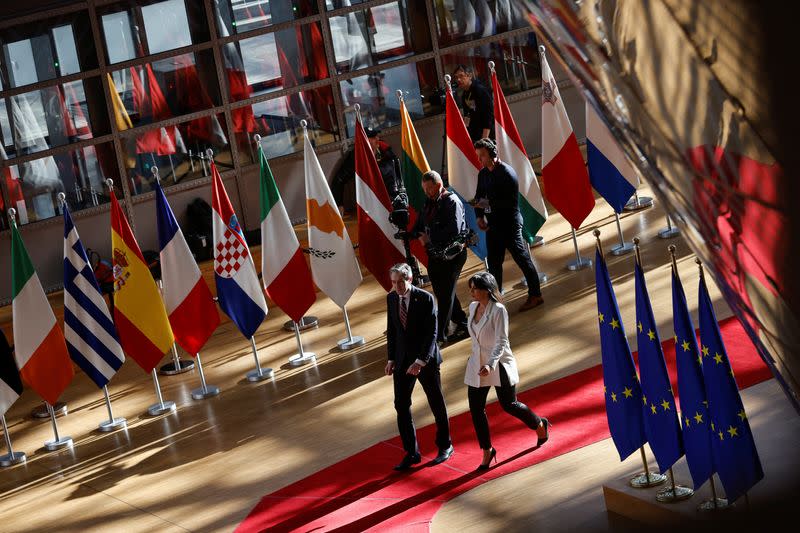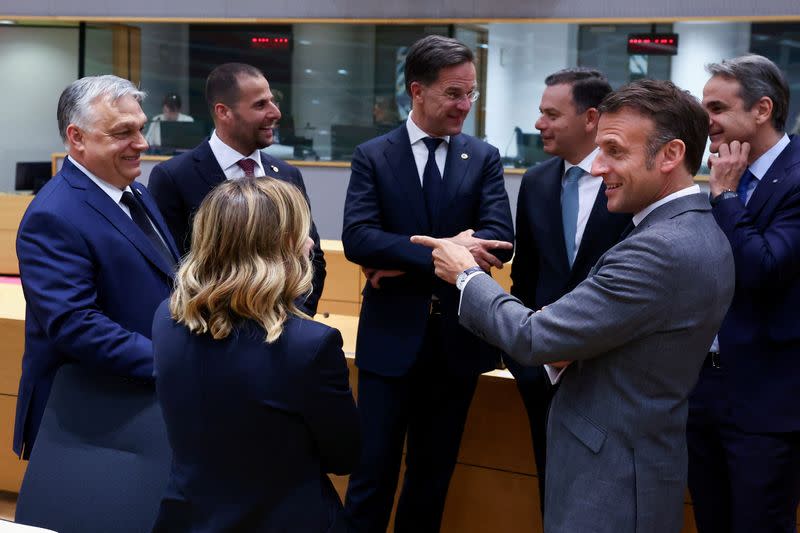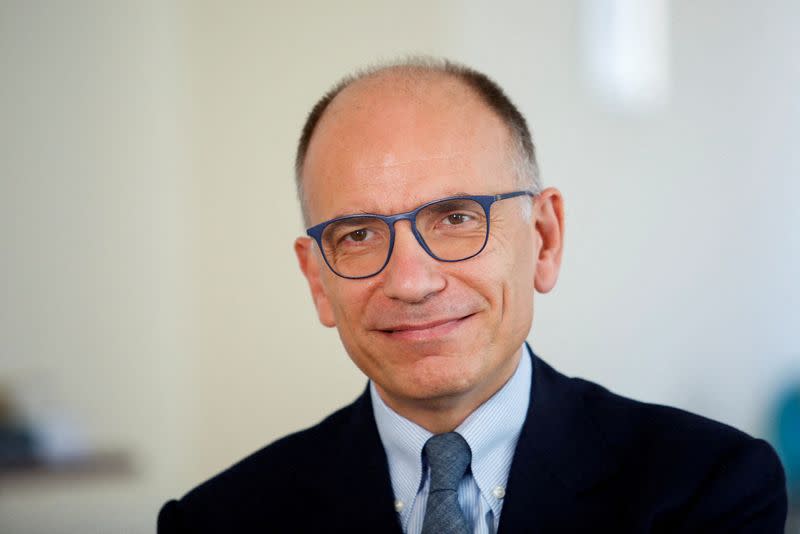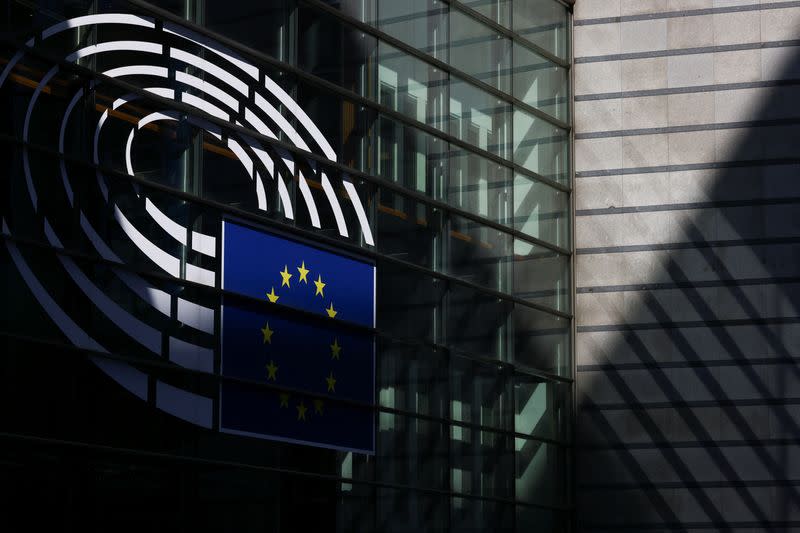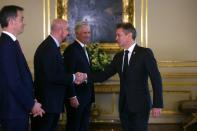EU backs competitiveness push, but divisions persist
By Philip Blenkinsop and Nette Noestlinger
BRUSSELS (Reuters) -European Union leaders agreed to reforms on nine fronts on Thursday to revitalise the bloc's economy and help it catch the United States and China in the global tech race, but still exposed differences on freeing up the money required to do so.
Leaders first heard from former Italian Prime Minister Enrico Letta, tasked with assessing the shortfalls of the EU single market, who has warned this is the bloc's last opportunity to act.
Letta's report said the rise of geopolitical tensions and protectionism threatened EU economic security and undermined its push into technologies from artificial intelligence to clean tech and its green and digital transition which is set to cost 620 billion euros ($662 billion) per year.
Letta said the greatest impact could come from steering the 33 trillion euros of private EU savings from current accounts to the real economy.
Key to that could be the EU capital markets union (CMU), but negotiations have stalled for nearly a decade because EU members do not want to relinquish control of national financial rules.
DIVERGENCE
All EU leaders expressed support on Thursday for CMU, the key elements of which finance ministers foresee by 2029, but divisions remain.
Dutch Prime Minister Mark Rutte said the differences of opinion were big, adding his country wanted to push forward quickly, but others were more reticent.
French President Emmanuel Macron said he believed Thursday's discussions had at least resolved some uncertainties and reduced concerns.
France and Germany are pushing hard for a union that would include joint financial supervision, on which several smaller states such as Luxembourg, Malta and Ireland are not keen.
"You can do capital markets union, but you need to do it correctly," Irish Prime Minister Simon Harris said, adding the EU still needed to examine the issue of supervision.
"I'm yet to be convinced around the need for an overly intense emphasis on centralization of those functions."
Harris also said he opposed harmonisation of corporate taxes, a view echoed by Estonian Prime Minister Kaja Kallas.
German Chancellor Olaf Scholz said an approach of special regimes on supervision and tax would no longer do as the bloc was not mobilising Europe's capital for EU companies.
"And that is not a solution with which we can be satisfied," he said.
Ireland and Estonia are also among the signatories to a February letter warning of a dangerous subsidy race inside the EU, where Germany and France lead on state aid, arguing not all are able to match the heavier spending of Berlin and Paris.
In the final summit conclusions, a reference to harmonising corporate tax law was removed, and leaders asked the European Commission to look into EU bodies supervising parts of the CMU.
The leaders' nine fields of improvement include deepening the EU single market, fostering more innovative research and using resources more efficiently.
They also want a unified energy market, which could make cheaper renewable energy available to all.
($1 = 0.9367 euros)
(Reporting by Philip Blenkinsop, Andreas Rinke; Bart Meijer, Charlotte Van Campenhout, Benoit Van Overstraeten, Nette Noestlinger, Tassilo Hummel, Inti Landauro, Sudip Kar-Gupta and Jan Strupczewski; Editing by Jamie Freed and Mark Potter)

 Yahoo Finance
Yahoo Finance 